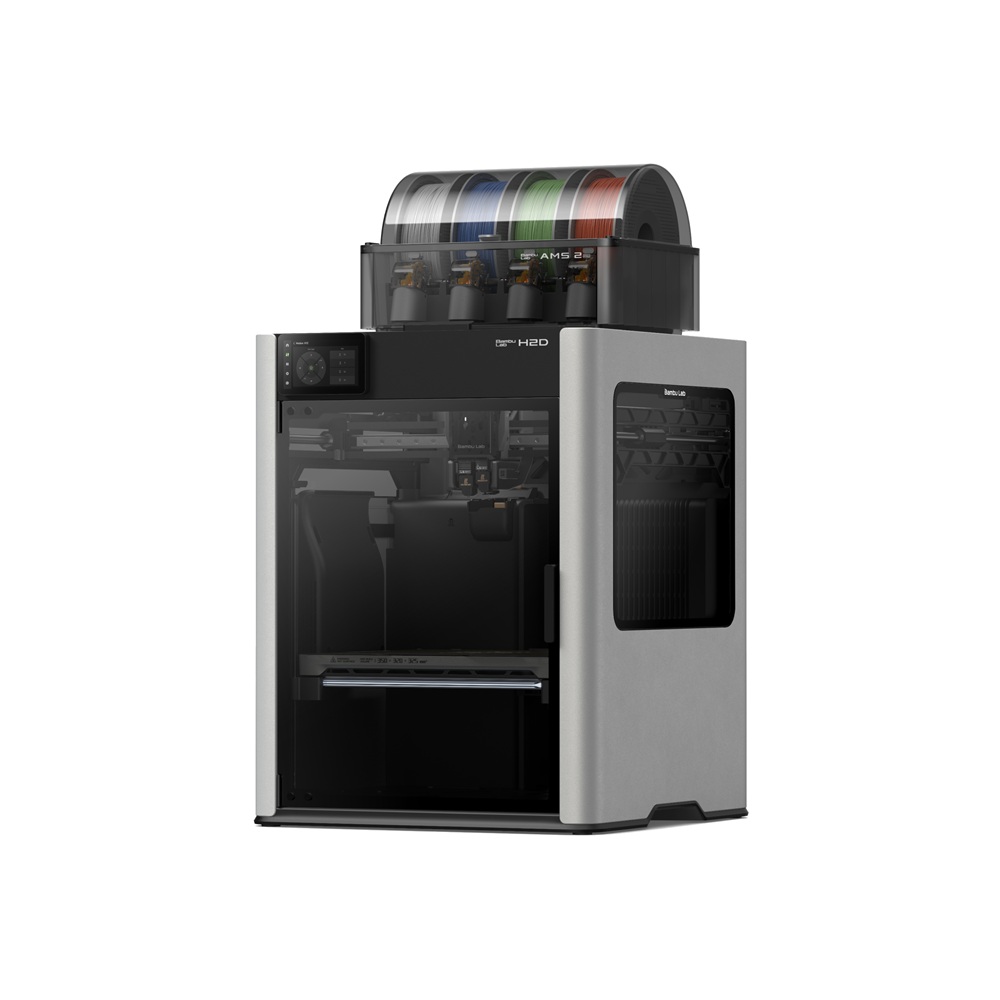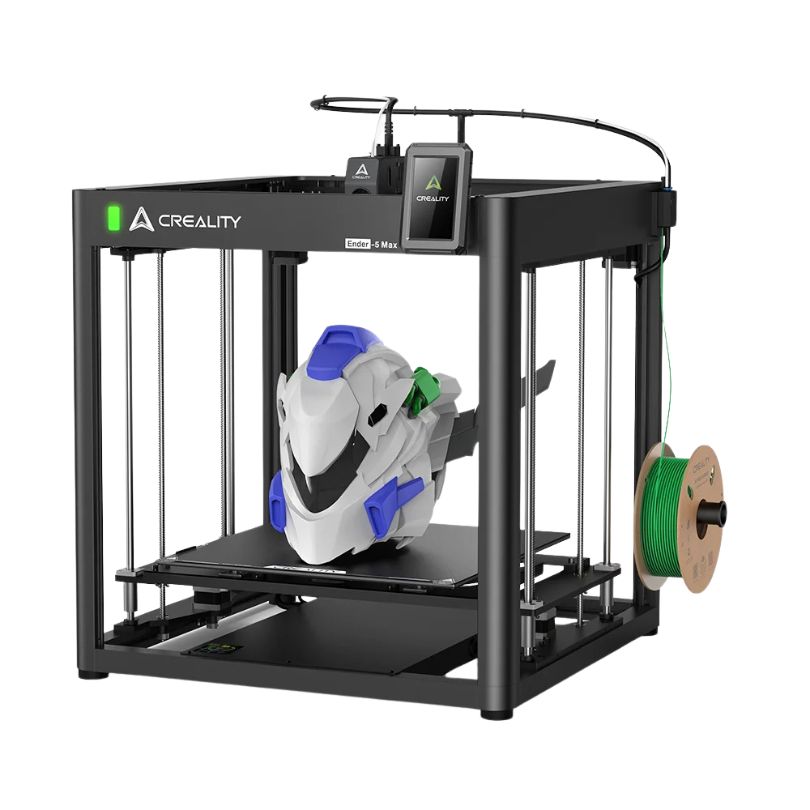Compare H2D vs Ender 5 Max
Comparison between the best 3D printers
Choose the best 3D printer at the best price. The cheapest 3D printers are here.
Buy a 3D printer here with 3D Fila.
 |
 |
|
| Model | H2D |
Ender 5 Max |
| Printing Material | Filament | Filament |
| Buy Filament for Bambu Lab H2D | Buy Filament forCreality Ender 5 Max | |
| Estimated price | $1899,00 | $769,00 |
| Manufacturer | Bambu Lab | Creality |
| Release Year | 2025 | 2025 |
| Print Volume [mm] | 350x320x325 | 400x400x400 |
| Printer Size [mm] | 492x514x626 | 649x721x850 |
| Weight [kg] | 42,3 | 25,9 |
| Power Loss Recovery | YES | YES |
| Enclosed printer | YES | NO |
| Bed Leveling | Automatic | Automatic |
| Filament End Sensor | YES | YES |
| Bed type | Heated | Heated |
| Power supply system | Direct Drive | Direct Drive |
| Standard nozzle | 0,4 | 0,4 |
| Maximum Nozzle Temperature [°C] | 350 | 300 |
| Maximum Bed Temperature [°C] | 120 | 100 |
| Maximum printing speed [mm/s] | 600 | 700 |
| Filament holder | YES | YES |
| Camera for supervision | YES | YES |
| Recommended filaments | PLA, PETG, ABS, ASA, TPU, PVA, Nylon (PA) | Hyper PLA/PLA/PETG/TPU95A/ABS/ASA/PLA-CF/PA/PLA-Silk |
| Recommended slicers | Bambu Studio | Creality Print 5.1 |
| Maximum Resolution [mm] | 0,01 | 0,1 |
| Processor | ||
| Display | Touchscreen 5'' | Touchscreen 4,3'' |
| Power Supply | 1250 W | |
| Connectivity | Wifi, Bambu bus, Cartão SD | USB, Wifi |
| Operating systems | Windows, Mac, Linux | Windows |
| Date of registration in the system | 2025-03-31 | 2025-02-18 |
| Release date | 2025 | 2025 |
| Extra features | Bambu Labs H2D combines high-speed 3D printing with a chamber heated up to 65 °C, dual extrusion with automatic nozzle switching, an AMS for filament drying and exchange, and AI sensors that detect failures. It offers optional laser and digital cutting capabilities, features intelligent calibration through computer vision, vibration control, enhanced fire safety, and real-time camera monitoring. | The Ender 5 Max by Creality features a 400 x 400 x 400 mm build volume, a rigid aluminum frame, and 36-point auto bed leveling. With speeds up to 700 mm/s, it boasts a hardened dual-gear extruder and a 1000W heated bed, reaching 80°C in just 200 seconds. It supports remote management via WLAN, a tri-color status indicator, and quiet operation, making it ideal for high-precision, high-productivity 3D printing. |
| Support for multiple colors and materials (AMS and CFS) | YES | NO |
Notes * |
||
| Cost-benefit | 7 / 10 | 7 / 10 |
| Hardware | 7.2 / 10 | 4.5 / 10 |
| Tela | . | . |
| Print volume | 4 / 10 | 4 / 10 |
| Performance | 5 / 10 | 6 / 10 |
Conclusion |
| In comparing the Bambu Lab H2D and the Creality Ender 5 Max, both 3D printers provide unique advantages catering to different user preferences and needs. The H2D, although priced higher, offers remarkable features such as a heated chamber, advanced dual-extrusion capabilities, and comprehensive AI-powered monitoring systems. It's optimized for handling a variety of filament types and includes additional functionalities like intelligent calibration and improved safety features. With a maximum nozzle temperature of 350°C, it allows for a broader range of high-performance materials. Its enclosed design makes it suitable for more sensitive filaments, promoting better print quality. Conversely, the Ender 5 Max stands out with its larger print volume, accommodating larger projects. It boasts faster printing speeds and is praised for its construction, which enhances stability during operation. Although it lacks the advanced features found in the H2D, it remains a solid option for users seeking a cost-effective solution for high-precision printing. In conclusion, the choice between the two models largely depends on the user's specific needs. The H2D, with its cutting-edge technology and feature-rich design, is perfect for those prioritizing performance and versatility. Meanwhile, the Ender 5 Max is an excellent choice for budget-conscious users who still need reliability and decent print quality. Ultimately, both printers offer good value within their respective price ranges, and the decision should align with the user's intended applications and preferences. |

